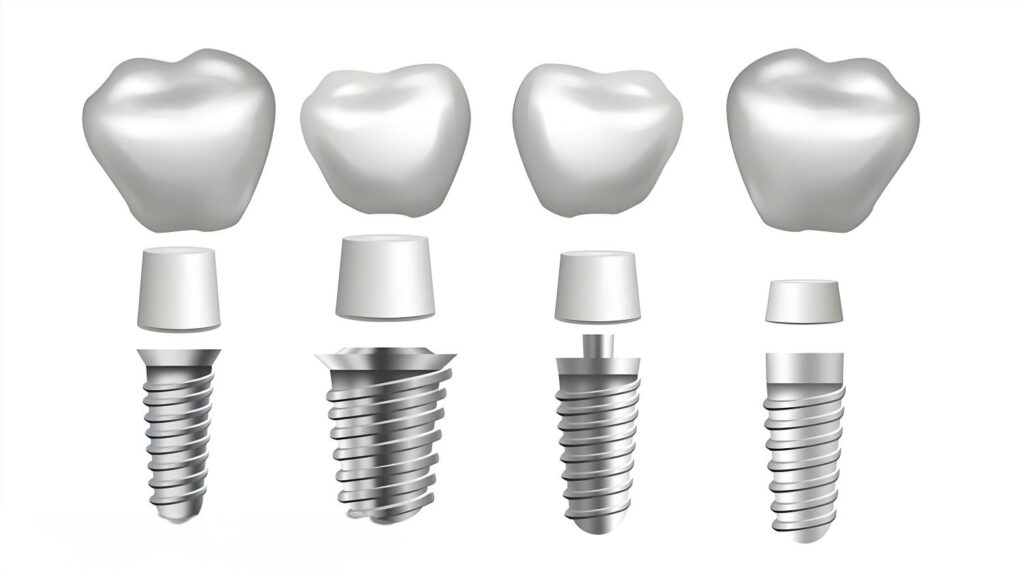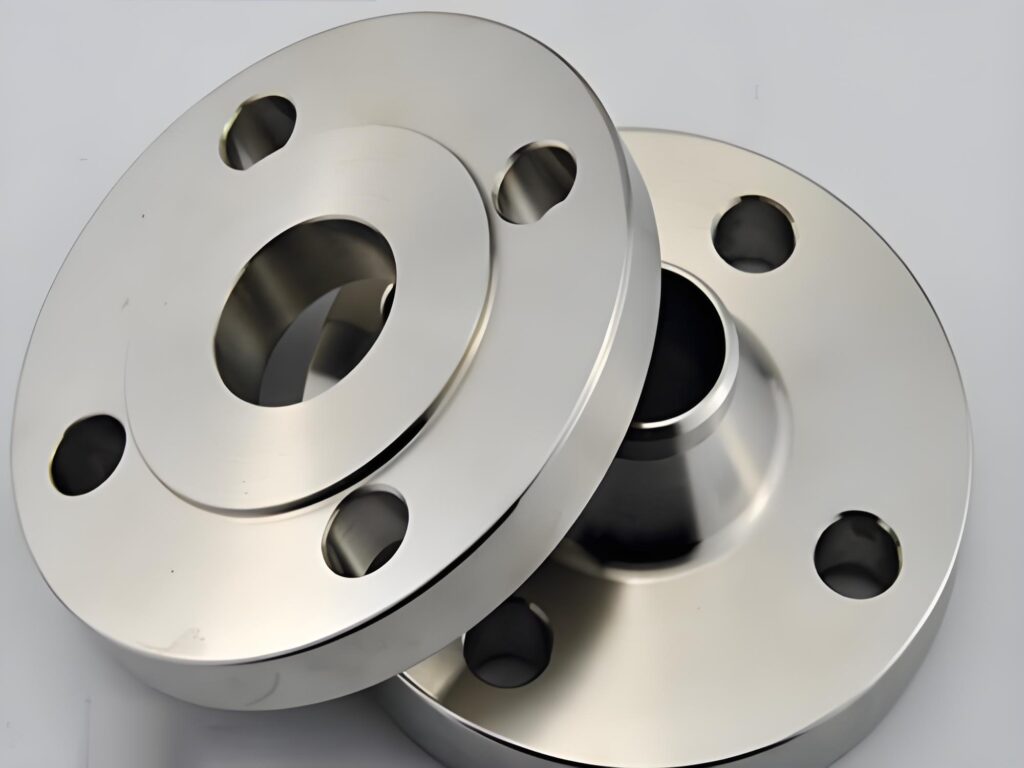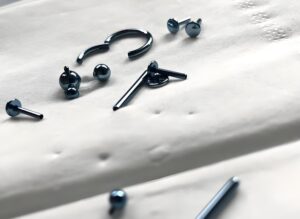Titanium is celebrated for its strength, lightness, and sleek appearance, but one question consistently arises: Does titanium rust? This guide dives into titanium’s unique ability to resist corrosion, how it compares to other metals, and practical tips for maintaining its durability. Whether you’re an engineer, manufacturer, or simply curious, understanding titanium’s rust-resistant properties reveals why it’s a top choice in industries from aerospace to medicine.
Does Titanium Rust?
No—titanium does not rust in the traditional sense.
Rust specifically refers to the reddish-brown iron oxide that forms when iron or steel reacts with oxygen and moisture. Since titanium contains no iron, it can’t form this type of rust. Instead, titanium develops a protective layer that shields it from corrosion, even in harsh environments like saltwater or acidic conditions.
Why Doesn’t Titanium Rust?
The secret lies in titanium’s passive oxide layer. As soon as titanium is exposed to oxygen—even at room temperature—it forms a microscopically thin but incredibly resilient film of titanium dioxide. This layer is:
- Self-healing – If the surface is scratched or damaged, the oxide layer reforms almost instantly in the presence of oxygen or water.
- Chemically stable – It remains intact across a wide range of pH levels.
- Adherent – It bonds tightly to the titanium surface, unlike rust flakes that fall away from iron, exposing more metal to damage.
This property makes titanium unique compared to many metals that require coatings or treatments to achieve similar levels of protection. For example, stainless steel relies on added chromium to create a similar protective layer, whereas titanium achieves this naturally.
From a scientific standpoint, the strong affinity between titanium and oxygen is the key. This bond creates a barrier that is virtually impermeable to oxygen diffusion, thereby stopping the process that leads to rust.
How Alloying Affects Titanium’s Corrosion Resistance
Pure titanium is already highly corrosion-resistant, but most titanium used in industry is alloyed with metals like aluminum, vanadium, or molybdenum to boost strength.
Alloying elements like aluminum or vanadium don’t compromise the oxide layer. In fact, some alloys (e.g., Grade 12 titanium, with molybdenum and nickel) are specifically engineered to resist corrosion in extreme conditions, such as high-temperature acids.
Titanium vs. Other Metals: How It Stacks Up in Corrosion Resistance
Titanium outperforms most common metals in resisting corrosion. Here’s how it compares:
Titanium vs. Steel
Steel: Contains iron, so it rusts readily in moisture. Even stainless steel (which has chromium to form a protective layer) is less durable than titanium in harsh environments. For example, stainless steel may pit or corrode in saltwater over time, while titanium remains unaffected.
Titanium vs. Aluminum
Aluminum: Forms its own oxide layer, but it’s less stable than titanium’s. Aluminum corrodes quickly in saltwater or alkaline environments (e.g., cleaning chemicals), whereas titanium thrives in these conditions.
Titanium vs. Copper
Copper: Develops a green patina (copper carbonate) over time, which offers some protection but is less effective than titanium’s oxide layer. Copper corrodes in acids or saltwater, making it unsuitable for long-term exposure to these environments.
Titanium vs. Brass
Brass: A copper-zinc alloy that resists corrosion in dry conditions but can suffer from “dezincification” (zinc leaching out) in acidic or salty environments. Titanium avoids this issue entirely.
When Can Titanium Corrode?
While titanium is highly resistant, it’s not invincible. Corrosion can occur in extreme, specialized conditions:
High-temperature chlorine gas: At temperatures above 200°C (392°F), chlorine can break down the oxide layer, causing corrosion.
Hydrofluoric acid (HF): This rare acid dissolves titanium dioxide, exposing the metal to damage.
Low-oxygen environments: In sealed, oxygen-free settings (e.g., deep underground pipelines), the oxide layer may not reform if damaged, leading to slow corrosion.
These scenarios are rare and mostly limited to industrial or laboratory settings—not everyday use.
Applications: Where Titanium’s Corrosion Resistance Shines

Titanium’s ability to resist rust and corrosion makes it irreplaceable in these industries:
Aerospace
Jet engines, aircraft frames, and rocket parts: Withstand high altitudes, moisture, and temperature swings without corroding.
Medical
Implants (hip replacements, dental screws): Resist bodily fluids and remain stable for decades, avoiding rejection or degradation.
Marine
Ship propellers, hulls, and underwater pipelines: Thrive in saltwater, where steel would rust and aluminum would pit.
Chemical Processing
Reactors, tanks, and pipes: Handle acids, alkalis, and corrosive chemicals that would eat through other metals.
Consumer Products
Watches, jewelry, and sports gear: Stay shiny and durable despite sweat, water, or outdoor exposure.
How to Prevent Titanium from Rusting or Corroding
While titanium is naturally resistant to rust and corrosion, proper care can further extend its lifespan and maintain its aesthetic appeal. Here are some practical tips to ensure titanium components remain in top condition.
Regular Cleaning
Titanium’s surface can accumulate dirt, oils, or other contaminants that may obscure its shine. Regular cleaning with mild soap and water can keep titanium looking pristine. Avoid abrasive cleaners or pads, as these can scratch the surface, though the oxide layer will still protect against corrosion.
Avoid Harsh Chemicals
While titanium is highly resistant to most chemicals, prolonged exposure to certain substances, like hydrofluoric acid or concentrated sulfuric acid, can damage the oxide layer. In industrial settings, ensure that titanium components are not exposed to these rare but harmful substances unless they’re specifically designed for such environments.
Inspect for Mechanical Damage
Although titanium’s oxide layer self-heals, significant mechanical damage, like deep scratches or dents, can expose the underlying metal. Regular inspections can help identify and address any damage early, ensuring the material remains protected.
Use Proper Storage
When not in use, store titanium components in a dry, clean environment to prevent unnecessary exposure to moisture or contaminants. While titanium is unlikely to corrode, proper storage can help maintain its appearance and prevent surface blemishes.
Surface Treatments
In some cases, titanium components may benefit from surface treatments like anodizing, which can enhance the oxide layer’s thickness and improve resistance to wear. These treatments are particularly useful for decorative applications or components exposed to abrasive conditions.
Common Myths About Titanium and Corrosion
- Myth: Titanium is 100% corrosion-proof. Fact: It’s highly resistant but can corrode in extreme conditions (e.g., high-temperature chlorine). These are rare in most applications.
- Myth: Titanium doesn’t need maintenance. Fact: While low-maintenance, regular cleaning preserves its appearance, especially in consumer products.
- Myth: Titanium is too expensive to be practical. Fact: Its longevity and low upkeep make it cost-effective in critical applications (e.g., medical implants, aerospace), where failure is costly.
Conclusion: Titanium’s Rust Resistance Makes It Irreplaceable
Titanium’s inability to rust—thanks to its self-healing oxide layer—sets it apart as a material for the most demanding environments. From deep-sea equipment to life-saving implants, its corrosion resistance ensures reliability where other metals fail.
At Precionn, we leverage titanium’s unique properties to machine precision components for industries worldwide. Whether you need marine-grade parts or medical implants, our expertise ensures your titanium components perform flawlessly for years.
Contact us today to explore how titanium can elevate your project.




